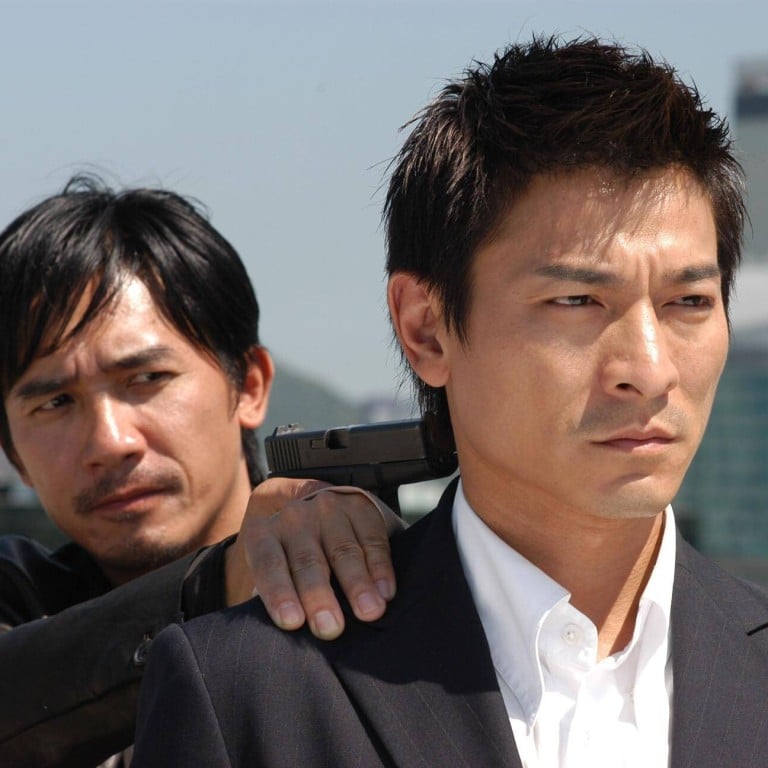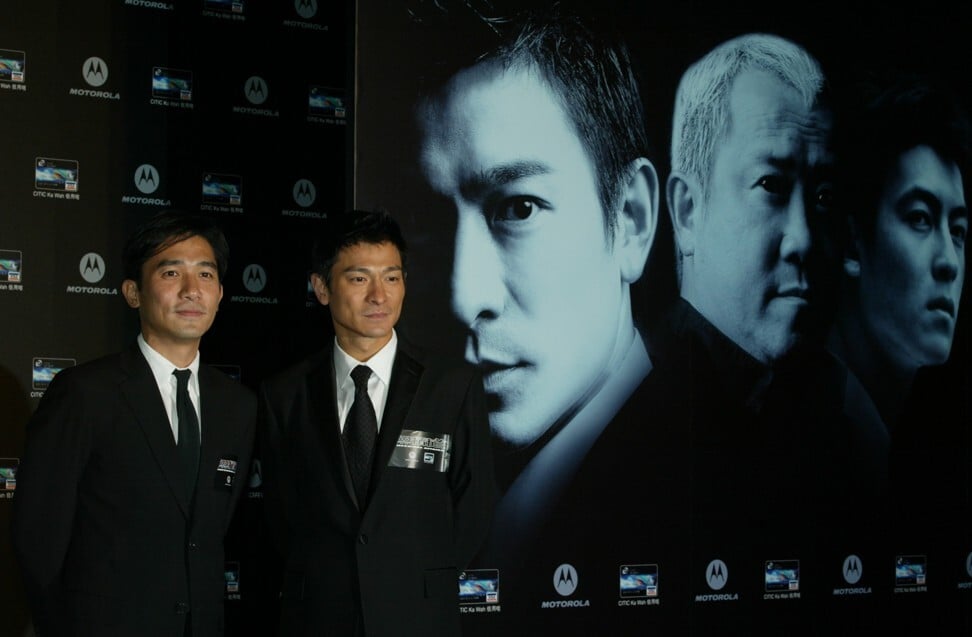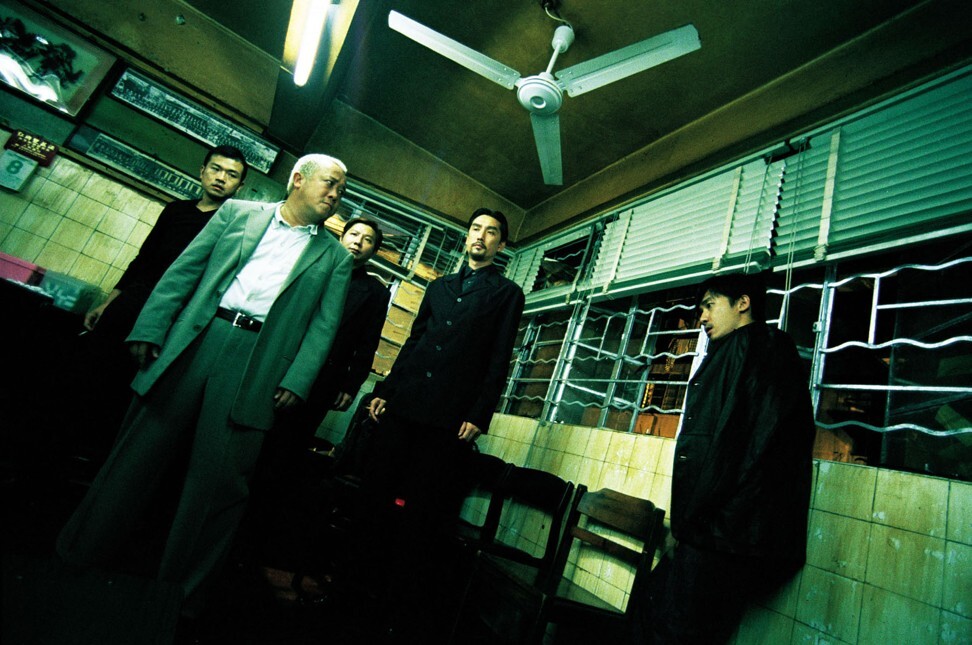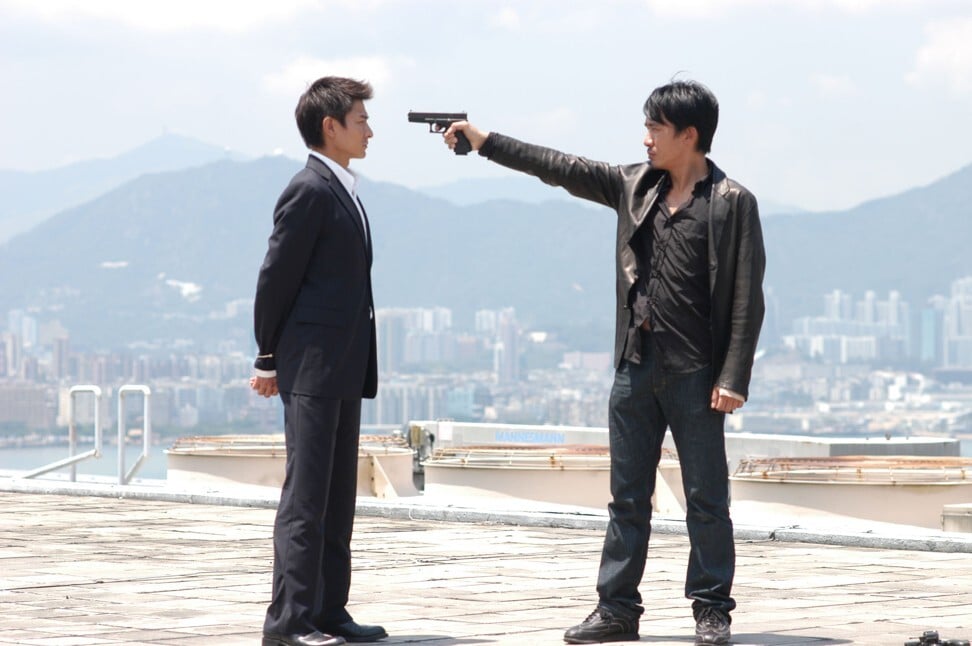Martin Scorsese’s The Departed was famously based on Infernal Affairs – the Andy Lau and Tony Leung movie that ‘saved Hong Kong cinema’

Infernal Affairs’ origins can be traced to another Hong Kong director – John Woo. Having proven himself the undisputed king of action, Woo left for Hollywood prior to the 1997 handover of Hong Kong from Britain to China. After middling success with Hard Target and Broken Arrow, Woo scored his first major hit in the West with the release of Face/Off, an action classic that featured all of the director’s stylistic hallmarks in an outlandish tale of a cop and gangster literally swapping faces.
It was from this crazy concept that Infernal Affairs was born.
“Around 1998, I saw Face/Off, and I really liked that movie,” Mak told Hong Kong CineMagic back in 2003. “With that movie as inspiration, I began to start to think about a story in which two people swap identities.”
Wisely, the co-directors ditched the more far-fetched elements of Woo’s story, opting instead for a more subtle role reversal and a set of moral ambiguities that helped elevate Infernal Affairs above the average police drama.
Yet even if Face/Off was the more immediate inspiration, both Mak and Lau had showed an interest in the concept of police officers working undercover in previous films.

Even thematically, Lau had presented key themes from Infernal Affairs in earlier works. The director’s hugely popular triad series, Young and Dangerous, featured many of the themes that would be included in the Infernal Affairs trilogy. Topics such as the impact of the 1997 handover on the triad economy, the increasing importance of China, and international ties with Taiwan, Japan and Thailand as bets against the uncertain situation in Hong Kong were all present in Lau’s earlier works.
In fact, the local success of the Infernal Affairs trilogy as a whole can be attributed to how much these themes resounded in Hong Kong at the time. The films were released at a time when the city was shaken by the Sars coronavirus – in a manner much more visceral than the reaction provoked by today’s Covid-19 pandemic – a depressed economy, and bouts of political disaffection such as the marches against Hong Kong Basic Law Article 23 in 2003. Real life issues surrounding politics, economy and society as a whole were reflected on the big screen in Lau and Mak’s work.
Even the film’s Cantonese title, “Mou Gan Dou”, seemed appropriate. The name refers to the Avici realm of hell in Buddhism, a “continuous hell” filled with suffering. For a city lurching from the handover to the Asian Financial Crisis to Sars to protests, “mou gan dou” captured the mood in Hong Kong.
Lau has been blasé about his many films focusing on triad activity. Speaking to CNN in 2007 he said, “It’s funny, when I was young at that moment the triad society [was all] around us. For us, it’s not a big deal. Because some of our friends would be triad society members, and long time ago so many from that kind of society wanted to invest in the film industry.”

As far as getting cast and crew together, the co-directors have stated that was never a problem. Although in Hollywood big name actors might be reluctant to share top billing with one another – how often did Arnold Schwarzenegger and Sylvester Stallone crossover in their prime – in Hong Kong that is usually less of an issue. Traditional Lunar New Year films are often packed with stars and notable directors like Wong Kar-wai have enough influence to attract a who’s who of leading actors and actresses.
Securing both Andy Lau and Tony Leung was simple according to Mak. “People always ask how you can find Tony Leung and Andy Lau to act in this movie,” he told film studies scholars Gina Marchetti and Amy Lee. “It’s not common to see the two of them in the same film.
“Because Hong Kong movies were going through a bad time, they both wanted to find a good project so that they could cooperate and make a good film. They read the script, and they were attracted to the idea. Having a script before a project comes together is not common in Hong Kong. In this case, it helped quite a bit to have a strong script.”
Andrew Lau played his part, too, in getting the stars together. With his long history in the film industry, Lau was something of a “big brother” even then. It was through his long established relationship with Andy Lau and Tony Leung that the actors got the script and came on board the project.

Music, as ever, was another key component of the film. An often unremarked fact about Infernal Affairs is that it was the first time in Hong Kong film history that a full orchestra was used for a film score. Despite that, the most memorable song from the soundtrack is in fact Taiwanese singer Tsai Chin’s song Forgotten Times.
The song recurs through the trilogy, acting as an important leitmotif with its themes of memory and happier times. Lau says that the choice of song was purely serendipitous. The location scout used the song to test the sound equipment and both directors liked it.
Want more stories like this? Sign up here. Follow STYLE on Facebook, Instagram, YouTube and Twitter .

The Sars coronavirus, Asian financial crisis, post-handover angst and John Woo’s outlandish Nicolas Cage thriller Face/Off all set the tone for Andrew Lau and Alan Mak’s award-winning police and triad drama, which would inspire an Oscar-winning Hollywood remake